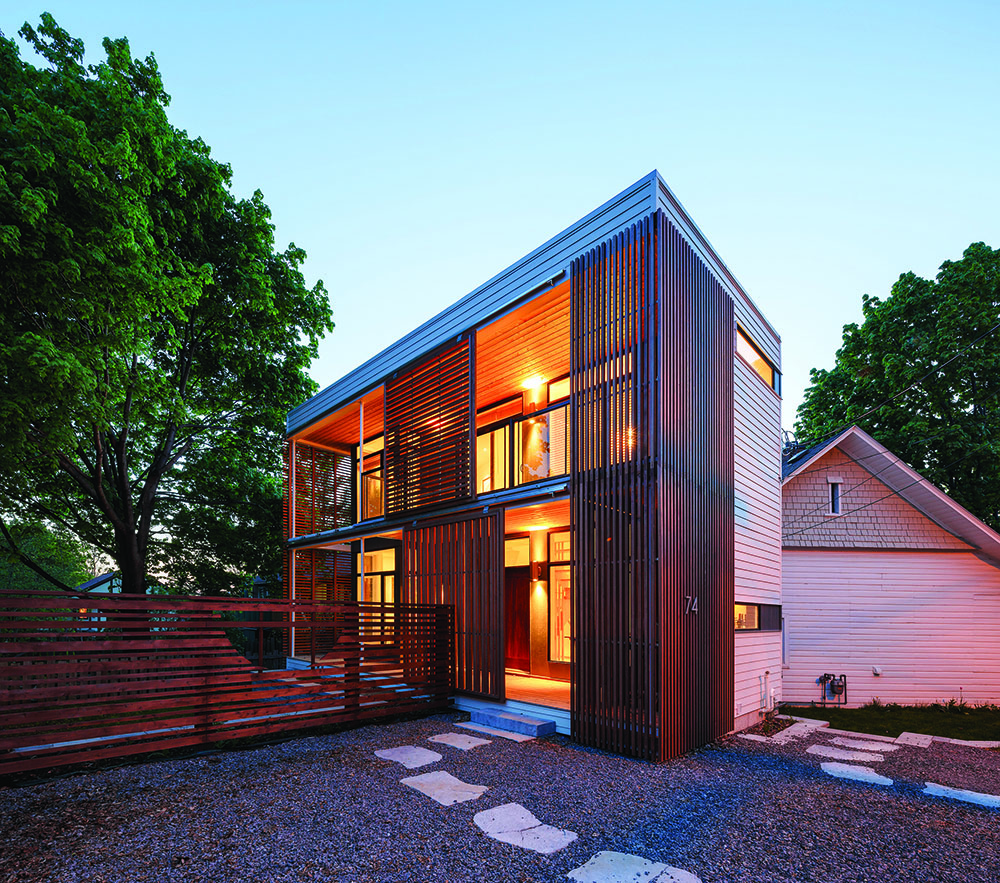Net-Zero Energy Housing
What is a Net-Zero Energy House?
A net-zero energy (NZE) house is designed and built to reduce household energy needs to a minimum and includes on-site renewable energy systems, so that the house may produce as much energy as it consumes on a yearly basis.
An NZE home is not necessarily an "energy autonomous" house or "off-grid" house, as it can be connected to the electricity grid, so that it can supply electricity to the grid when it is producing more than it needs and draw from the grid when household demands exceed the amount of electricity produced on site.
Taken over the year, the energy supplied to the grid balances the energy drawn from the grid, thus achieving net-zero annual energy consumption.
Why Net-Zero Energy Housing?
NZE housing provides a way to significantly reduce energy-related costs and protect against future energy cost increases. NZE houses also tend to be more resilient in that they can continue to offer shelter during power failures, as they need so little energy to operate and stay warm.
NZE homes also reduce the impact of housing on the natural environment by reducing energy-related pollutant emissions to the land, water
In addition, all of the features that make an NZE home possible can also provide a very comfortable, quiet and healthy indoor environment with plenty of natural lighting.
Achieving Net-Zero Energy
In order to create a net-zero energy home, there are three basic elements or steps to consider when designing and building the house:
1. Reduce the home's energy requirements
2. Include renewable energy systems to provide the amount of energy required to operate the home
3. Operate the home efficiently
NZE: Not Just for New Homes:
While NZE homes are often associated with modern, new home construction projects, the NZE design and construction principles can be applied to existing homes, as well. Obviously, it is far easier to build NZE features, such as increased insulation levels, superior airtightness, and efficient heating, appliance and lighting systems into new homes than into other existing ones. Existing homes pose challenges, as they have fixed solar orientation, structure and floor plans. It can also be very difficult to find the space in existing homes to add insulation and install the continuous air barrier system needed to reduce air leakage to a minimum. Despite these challenges, some renovators have applied NZE principles to renovation projects and have managed to ensure a significant reduction in net household energy use.
Summary:
NZE housing is a reality today and can offer a wide range of benefits and advantages, including the following:
- Low utility bills - save more money on energy costs all year round and be protected from future energy price increases.
- More comfortable living space - enjoy better indoor air quality, stable temperatures, more natural light, and isolation from outdoor noise sources.
- A greener choice for the environment - minimize the household's greenhouse gas emissions and ecological footprint, conserve resources and reduce pollution.
- A better future - help make sure that future generations of Canadians have better housing choices, clean air to breathe, clean water to drink, and a safe, healthy world to live in.

